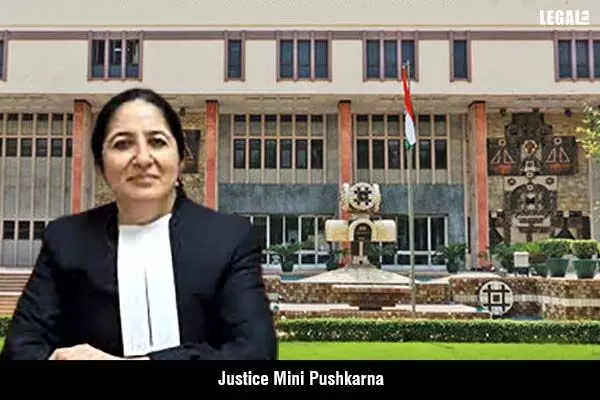- Home
- News
- Articles+
- Aerospace
- AI
- Agriculture
- Alternate Dispute Resolution
- Arbitration & Mediation
- Banking and Finance
- Bankruptcy
- Book Review
- Bribery & Corruption
- Commercial Litigation
- Competition Law
- Conference Reports
- Consumer Products
- Contract
- Corporate Governance
- Corporate Law
- Covid-19
- Cryptocurrency
- Cybersecurity
- Data Protection
- Defence
- Digital Economy
- E-commerce
- Employment Law
- Energy and Natural Resources
- Entertainment and Sports Law
- Environmental Law
- ESG
- FDI
- Food and Beverage
- Gaming
- Health Care
- IBC Diaries
- In Focus
- Inclusion & Diversity
- Insurance Law
- Intellectual Property
- International Law
- IP & Tech Era
- Know the Law
- Labour Laws
- Law & Policy and Regulation
- Litigation
- Litigation Funding
- Manufacturing
- Mergers & Acquisitions
- NFTs
- Privacy
- Private Equity
- Project Finance
- Real Estate
- Risk and Compliance
- Student Corner
- Take On Board
- Tax
- Technology Media and Telecom
- Tributes
- Viewpoint
- Zoom In
- Law Firms
- In-House
- Rankings
- E-Magazine
- Legal Era TV
- Events
- News
- Articles
- Aerospace
- AI
- Agriculture
- Alternate Dispute Resolution
- Arbitration & Mediation
- Banking and Finance
- Bankruptcy
- Book Review
- Bribery & Corruption
- Commercial Litigation
- Competition Law
- Conference Reports
- Consumer Products
- Contract
- Corporate Governance
- Corporate Law
- Covid-19
- Cryptocurrency
- Cybersecurity
- Data Protection
- Defence
- Digital Economy
- E-commerce
- Employment Law
- Energy and Natural Resources
- Entertainment and Sports Law
- Environmental Law
- ESG
- FDI
- Food and Beverage
- Gaming
- Health Care
- IBC Diaries
- In Focus
- Inclusion & Diversity
- Insurance Law
- Intellectual Property
- International Law
- IP & Tech Era
- Know the Law
- Labour Laws
- Law & Policy and Regulation
- Litigation
- Litigation Funding
- Manufacturing
- Mergers & Acquisitions
- NFTs
- Privacy
- Private Equity
- Project Finance
- Real Estate
- Risk and Compliance
- Student Corner
- Take On Board
- Tax
- Technology Media and Telecom
- Tributes
- Viewpoint
- Zoom In
- Law Firms
- In-House
- Rankings
- E-Magazine
- Legal Era TV
- Events
Delhi High Court Cancels MH7 Trademark For Infringing MH ONE Network's Mark

Delhi High Court Cancels "MH7" Trademark for Infringing MH ONE Network's Mark
The Delhi High Court has directed the Registrar of Trade Marks to cancel the "MH7" trademark, ruling that it infringes upon the trademarks owned by MH ONE TV Network Pvt. Ltd.
MH ONE TV Network Pvt. Ltd. (the petitioner) provides broadcasting services, including cable television and radio. Its 'MH ONE' channel features Punjabi music and entertainment programs. Additionally, the network operates 'MH ONE SHRADDHA', a devotional channel, and 'MH ONE NEWS', a 24-hour news channel focused on Hindi-speaking states. The network also generates revenue from digital media, including YouTube.
The network submitted that it had been using the "MH1" and "MH-ONE" trademarks since 2002 and that these marks had acquired significant goodwill and reputation due to their long and continuous use. The respondents, operating under the name "MH 7 News," provide media buying services that are similar to those of the MH ONE Network.
The respondents had adopted the "MH7" mark for their services, which had even been registered as a trademark. In light of the similarity between the MH ONE Network's mark and the respondent's, the network sought the cancellation of the registered "MH7" trademark, arguing that it would cause confusion in the normal course of business activities, given that both parties operate in similar industries.
Justice Mini Pushkarna proceeded ex parte with the case, as the respondent did not appear. The Court noted that the petitioner’s "MH ONE" and "MH1" trademarks had been registered in 2006 and 2008, respectively, while the respondents filed for their "MH7" trademark in 2017, several years after the MH ONE Network’s registrations.
Upon comparing the two marks, the Court observed that the respondent had adopted a mark that was deceptively similar to the MH ONE Network's trademarks. It also noted that the services offered by both parties were of a similar nature, and their target consumers were also the same. In light of this, the Court concluded that the "Triple Identity Test" similar mark, similar services, and similar consumers had been satisfied.
The Court further noted that there was a high possibility that consumers would confuse the respondent's "MH7" mark with the established "MH ONE" mark. Given the long history of the network's use of its mark, the Court opined that the respondents had likely adopted a similar mark to take advantage of the goodwill associated with the MH ONE brand. Finding the marks to be deceptively similar, the Court ruled that the registration of the "MH7" trademark was incorrect and illegal. As a result, the Court ordered the cancellation of the respondent's trademark and directed the Registrar of Trade Marks to remove the "MH7" mark from the trademark register.


